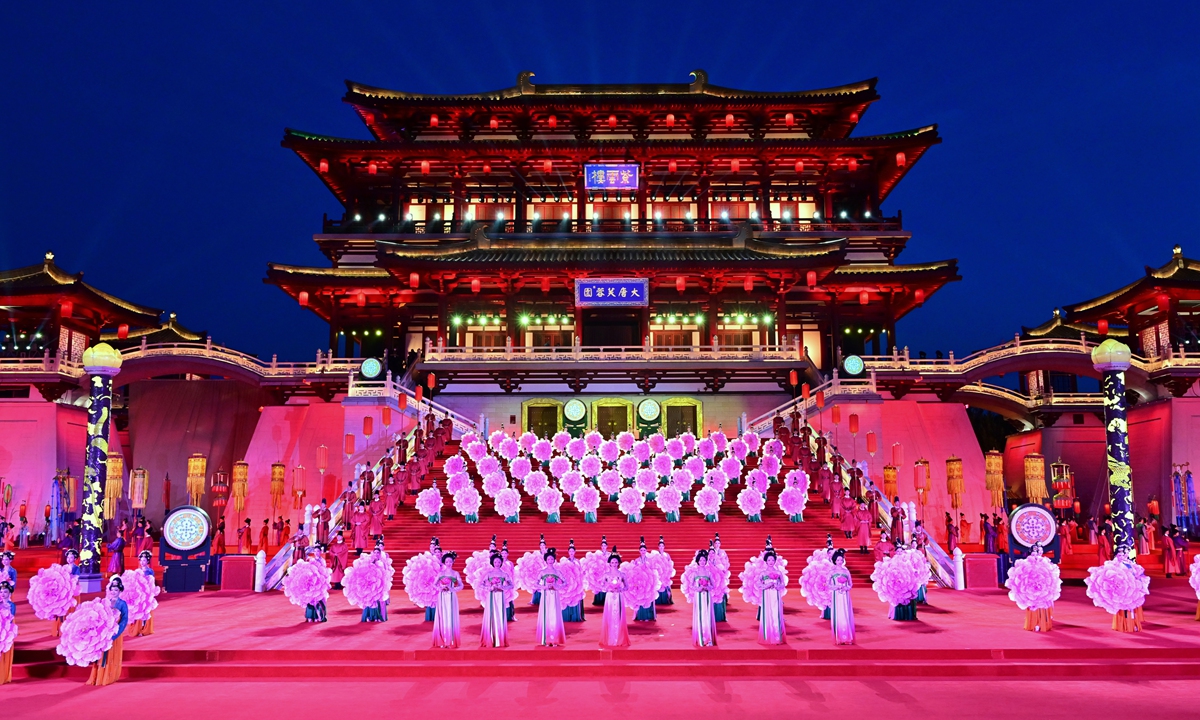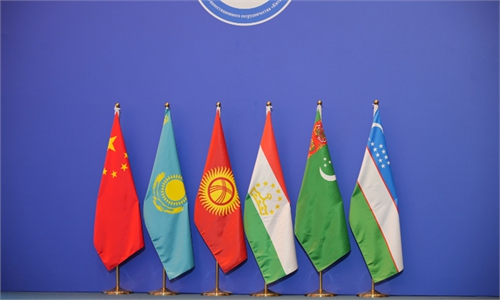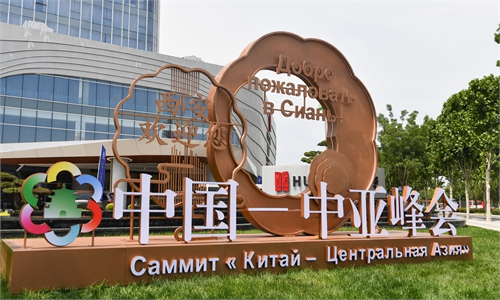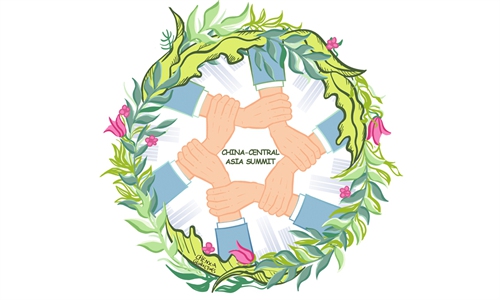
Photo: VCG
What is true multilateralism and what is pseudo-multilateralism? China's Xi'an on Thursday and Japan's Hiroshima on Friday provide two samples. The China-Central Asia Summit and the Group of Seven (G7) Summit held in these two cities respectively are vivid and accurate representation and illustration. The international community can see the contrast clearly.
The leaders of China and the five Central Asian countries are meeting in Xi'an, the eastern starting point of the ancient Silk Road. The profound meaning it represents transcends time, space and national boundaries. The six countries trade with each other, have friendly exchanges in diplomacy, and learn from each other in culture. This kind of communication mode of openness, tolerance, mutual respect, equality and mutual benefit has continued from the ancient Silk Road to today's "Belt and Road," showing a strong vitality and charisma.
This is true multilateralism, which is deeply rooted and popular in the world. It is committed to tackling challenges through cooperation, addressing issues that matter to all through consultation, and pursuing unity rather than division, cooperation rather than confrontation. The China-Central Asia Summit is a concrete practice of true multilateralism. It not only promotes the development of relations between China and Central Asian countries, but also injects a clear stream into the complicated and turbulent international situation where some people deliberately muddle the water. As a result, Xi'an, the ancient capital of thousands of years, presents a new look.
The G7 summit to be held in Hiroshima, Japan, makes an instant contrastive display of pseudo-multilateralism, or defines pseudo-multilateralism. What it engages in is an exclusive and closed clique that provokes geopolitical antagonism and confrontation. Even before the G7 summit is held, it released negative information one after another. In addition to further adding fuel to the Russia-Ukraine conflict, it also targets China - its interest has been on forming groups to strengthen containment of other countries. Japan's insistence on dumping its nuclear-contaminated wastewater into the Pacific has aroused the international community's indignation, and Japan, which holds the rotating presidency of the G7, has also turned this year's G7 meeting into a geopolitical drain.
"Truth" and "falsehood" will inevitably have a fierce collision. Even if "truth" does not care about "falsehood," "falsehood" will still smear "truth" in order to deceive others. This is the fundamental reason why some Western media and public opinion launch concentrated attacks and provocations against the China-Central Asia Summit. Behind every attack lies their dark intentions.
The hegemonic thinking of the US imposes a multiple-choice question on non-Western countries, dividing the diverse world into allies, geopolitical pawns, and geopolitical opponents or even enemies, and treating them differently. G7 countries are allies, Central Asian countries are pawns, and China is an opponent. This seems clear and distinct in Washington's eyes. However, they will never realize the immense disrespect toward countries seen as pawns and the great malice toward countries seen as opponents. Even allies are often the bullying targets that can be blackmailed at US will. They also disregard the serious damage caused by their actions to the overall interests of humanity.
The stark contrast between the clean stream of multilateralism injected by China and Central Asian countries in Xi'an and the geopolitical sewage discharged by the G7 in Hiroshima is evident. In terms of intentions, on one side, there is a shared destiny when both sides benefit based on mutual respect and equality; on the other side, there is the imperial arrogance of "one is superior than others," and the interest system of "Washington supremacy." In terms of specific actions, on one side, there is a focus on "development first," where anything beneficial for development and prosperity is promoted, which inherently makes it open and inclusive; on the other side, there are manifestations of closed and narrow-minded clique politics, filled with confrontation and destruction.
On one side is the extensive consultation and joint contribution, while on the other side is the bargaining "unified stance." These two summits vividly reflect two completely different approaches to dealing with each other in today's world. Washington officials are believed to have a clear target when talking about the G7 Summit, that is, confronting China. In contrast, China has clearly stated that its cooperation with Central Asia is not aimed at any third party, nor does it intend to compete with other mechanisms. China is willing to support any measures that are truly beneficial to regional stability and development and conducive to common prosperity in the region. The two different mindsets, perspectives and patterns are clearly distinguishable.
In recent years, different choices have written different annotations. In terms of development, the Belt and Road Initiative has brought a lot of development opportunities to countries along the route. The participation of the five Central Asian countries in the summit in Xi'an is the most convincing example. In terms of security, the concept of common, comprehensive, cooperative and sustainable security has become increasingly popular. It has promoted a gratifying wave of reconciliation in the Middle East and can be expected to bear fruits in more places in the future. On the other hand, Washington also invested a lot of costs in diplomacy after the end of the Cold War. However, the fact is that wherever it focuses on, there is confrontation and turmoil. From the Iraq War, the Syria War, the "Arab Spring" to the Russia-Ukraine conflict, which one does not have the shadow of the US and the West behind it?
In this sense, some Western media outlets comparing the China-Central Asia Summit with the G7 Summit is a good thing. It allows the world to see what the right path for humanity is, what the people support and what the future of mankind is.



